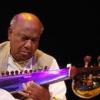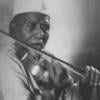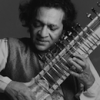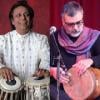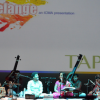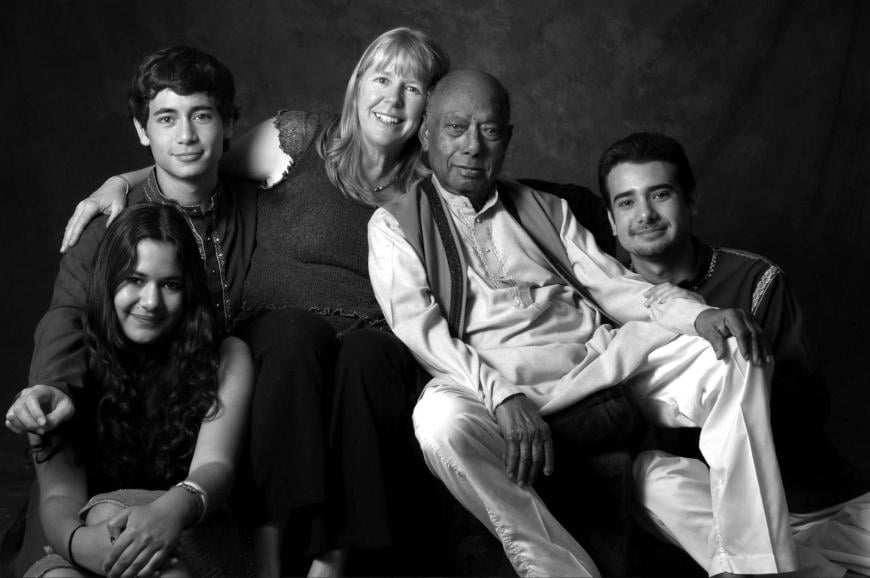
His family, his students, the school bearing his name, and admirers around the world will celebrate Ali Akbar Khan’s 100th birthday on April 14, 2022.
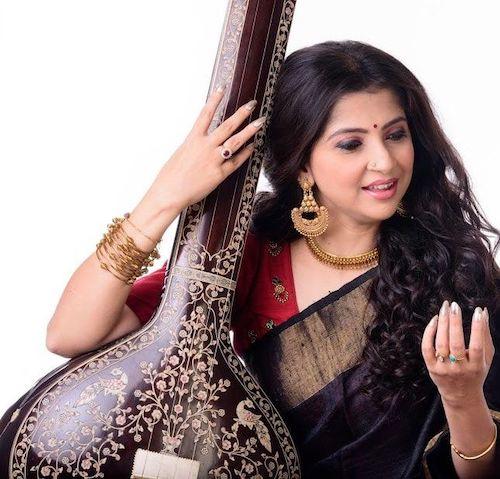
His widow, Mary Khan, writes: “Although he passed in 2009, we have held a tribute festival each year since, honoring him on his birthday in April.
“This year, for his centennial, we are hosting a full year of events — primarily online for safety and accessibility. We have just finished 53 years of teaching in the Bay Area, and throughout that time San Francisco Classical Voice has supported our school.”
SFCV doesn't quite go back a half a century, but as long as we’ve been here (since 1999), Khansahib has been a steady subject of reviews, news, and features. And rightly so, because he was a Marin-based musician renowned in his native Hindustan and wherever music is treasured. More than 10,000 students have attended his school in San Anselmo.
Mary Khan says of Khansahib: “His father [Baba Allauddin Khan] was considered one of the greatest musicians of the 20th century. It was like a perfect combination. His father could give it, and [Ali Akbar Khan] could just inhale it. So, when he sat down to teach, he had so much to draw from — you just felt like he was pulling from these deep recesses of knowledge that most people don’t get to experience in life. You don’t meet too many masters.”
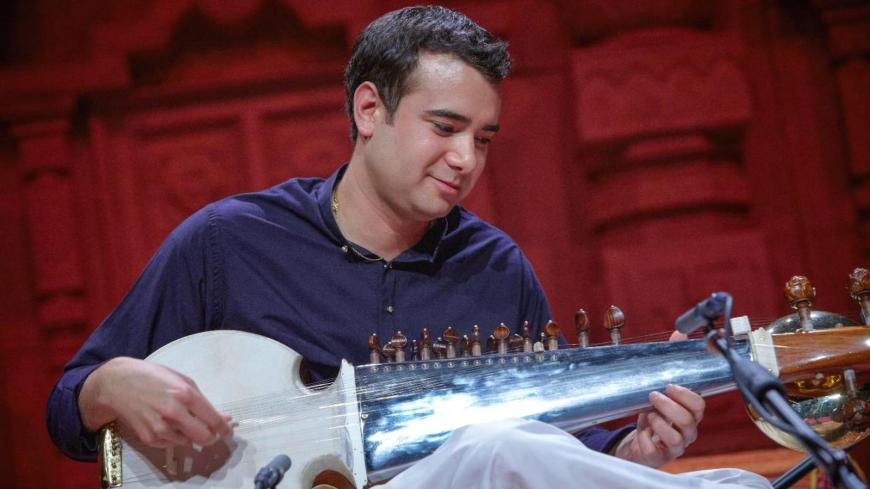
Before recapping memories of Khansahib, here are some of the plans for marking the centennial of his birth. All events will be online:
– A memorial concert on April 16, featuring Alam Khan, sarod; Kaushiki Chakraborty, vocals; Ojas Adhiya, tabla; Ajay Joglekar, harmonium; Kushal Das, sitar; Anindo Chatterjee, tabla
– Release of a book of his quotes, Musings of a Master Musician: Maestro Ali Akbar Khan, on Amazon books in hardback, paperback, and as an ebook
– A 24-hour radio station dedicated to his recordings at aliakbarkhan.com
– A plethora of concerts from some of Indian music’s brightest performers at aliakbarkhan.com
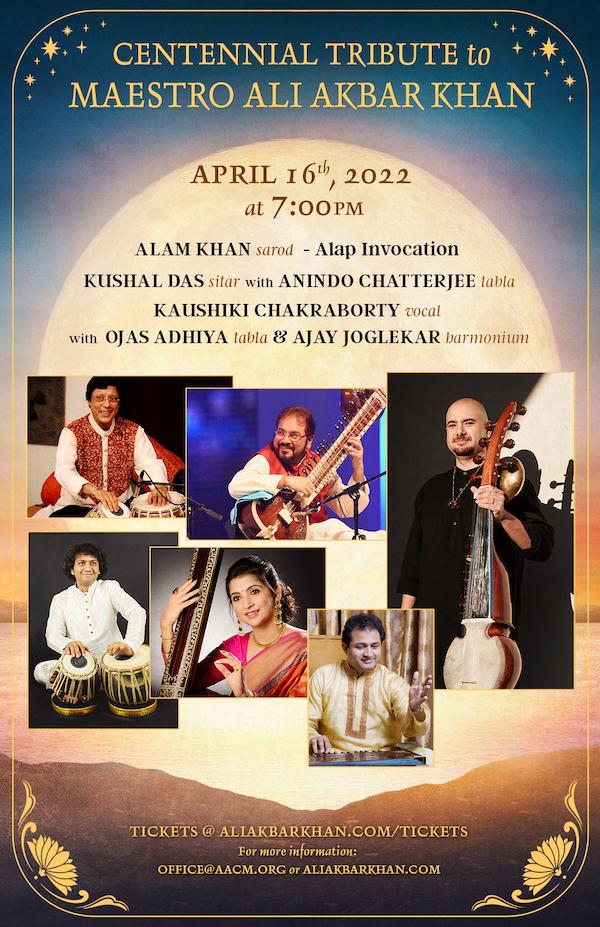
Yehudi Menuhin called him “the greatest musician in the world.” Khansahib brought “Indian music” (Hindustani, in fact, but close enough) to the West, along with Ravi Shankar, fellow student of his father, the legendary Baba Allauddin Khan.
World-famous but always an artist, not a star, the man known as Khansahib or by the title Ustad (master), sarod master Ali Akbar Khan died in his San Anselmo home in 2009. He was 87. I have wonderful memories of his many concerts in the Bay Area, especially in recent years, and including the grand event on his 80th birthday.
He had said of his life and art: “Through music we can do everything. We don't need other spiritual disciplines. I started learning when I was 3 years old. We had to learn all kinds of disciplines of life from childhood. Things like manners, how to talk to elderly people, and also music. These things became very natural when I grew up.
“I can see my whole life through my music. Music is like the soul and rhythm is like the body. I learned from my father that music is a direct way to reach God. The dream of my heart is to enter each and every corner of the world to present Indian music and win appreciation for it from all parts of the world.”
Spend some time with the virtuoso musician and his meditative Raga Marwa of Sunset and Twilight. (Imagine it orchestrated by Debussy.) And his son, Alam, in Misra Kafi – in Carnatic music, “Misra” is mixed, “Kafi” is a heptatonic raga, also called the Bhairavi of Night.
Graeme Vanderstoel, El Cerrito antiquarian bookseller and former international concert manager for Khansahib (and other artists from Asia), has been involved with Asian performing arts for decades. He told SFCV:
After Menuhin invited Ali Akbar Khan to perform at the Museum of Modern Art in New York City in 1955, Khansahib recorded an LP for Angel, Music of India, with tabla player Chatur Lal, and a recorded introduction by Menuhin.
Released around the world, it was for me, like so many, a breathtaking introduction to one of the great music traditions. It was one reason I left Australia for India in 1959. In my first week in Bombay, I heard Khansahib playing a duet with Ravi Shankar. Backstage, he handed me his card and asked: “When are you coming to Calcutta? Phone me and hear some music.”
We stayed in touch and met again in 1963 when he was invited to the Festival of India at the Edinburgh Festival. There we met Sam and Louise Scripps, who had just started the American Society for Eastern Arts (ASEA) in Berkeley. In 1965, they invited Khansahib to teach and tour for ASEA. By then, I was his international concert manager and joined him. Khansahib continued to teach each summer for ASEA while I became the director of programs.
He had started the Ali Akbar College of Music in Calcutta in 1956 and wanted a branch in California. With the assistance of students, it opened in late 1967, and is still going strong. He was teaching classes even two weeks before his death. The college will continue in San Rafael with his gifted American son, Alam Khan, and long-time resident teacher and tabla accompanist for Khansahib, Swapan Chaudhuri.
Tributes to Khansahib from around the world give glimpses into his life as court musician for the Maharaja of Jodhpur, receiving high awards in India and in the U.S., and life with a loving family. During the funeral Sunday at Mt. Tamalpais Cemetery, we heard the recording of a concert he gave for his college, over 40 years ago. The unique sounds of his alap in Raga Bhimpalasi reminded us of the incredible art of a gentle, generous man and teacher who many consider the greatest Indian musician of the past century.
The College has recordings of hundreds of concerts and classes. To complete archiving this work, the family requests donations for the Ali Akbar Khan Library.
Then, in August of 1971, Khansahib performed at Madison Square Garden for the Concert for Bangladesh, along with Ravi Shankar, Alla Rakha, and Kamala Chakravarty; other musicians at the concert included George Harrison, Bob Dylan, Eric Clapton, and Ringo Starr. A live album and a movie of the historic event were later released.
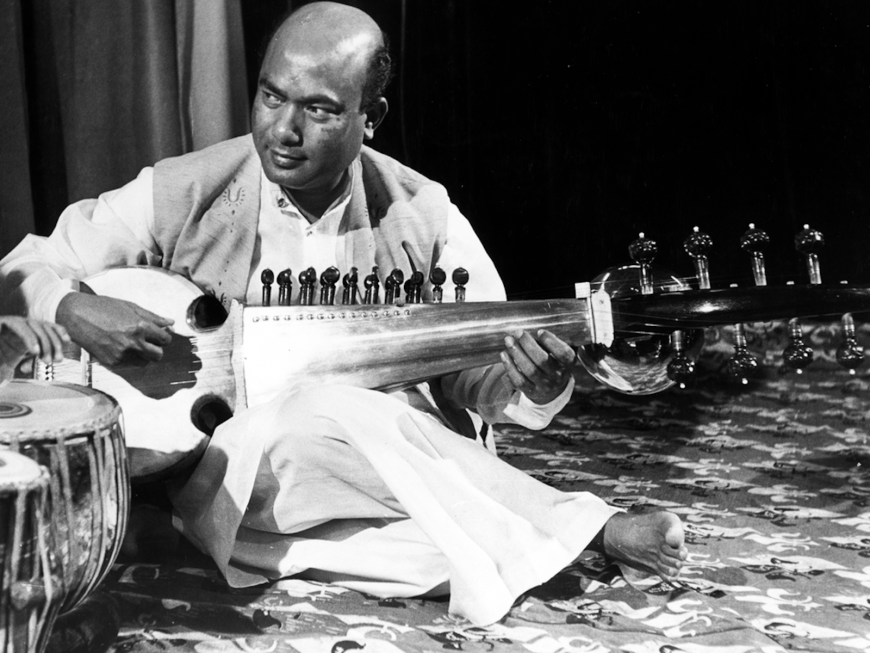
In 1972, Ravi Shankar and other musicians joined Khansahib for a memorial concert in [New York’s] Philharmonic Hall for his father, Baba Allauddin Khan, issued on a double Apple Records
More from Menuhin about the great master of sarod:
“May our Western audiences, privileged to listen to this great Ustad, remain, as so often I have remained, transported beyond dreams, and enveloped within the magical weave he spins of sound and time. A new image of beauty is born again before our eyes and ears, and we glimpse the remote and mysterious ways, the ideals which could evoke so lovely and tender a blossom.”
And from Grateful Dead drummer/percussionist Mickey Hart:
“It wasn’t so much about the note — it was about the emotional content behind the note, and it was like a deeper meaning, that was something deeper than the sound of the note. It was a spiritual reverberation, if you will.
“Any time music captures your imagination, there’s power there. And we knew it, we felt the power — we didn’t know how to deal with it, it was like electricity. And of course, he had a reputation, you know, that perhaps this was the greatest living musician in front of you, and so his reputation preceded him. I know Jerry [Garcia] was listening to Khansahib. He was listening as I was; we would sit there all night listening to Indian music.
“Did it work its way into Jerry’s playing? You bet. Grateful Dead would not be the Grateful Dead if Khansahib didn’t come over here with the College of Music.”
Tabla master Zakir Hussain:
“Ustad Ali Akbar Khansahib, Baba, Maestro — whatever you want to call him, it’s probably not going to be enough to even describe his stature as the musician of the century of India. He is one of those great luminaries who show up every once in a blue moon and gives the music the nudge it needs to move onto the next level. Indian music needs that because it’s a music that relies on spontaneous creativity, and there are very few musicians who have that musicality, that ability, and that musical vision to be able to see this whole picture which has been laid out thousands of years ago, and see what to do with it, where to take it in the lineage, so that it remains connected to the past, is valid in the present, and is equally at home in the future.”
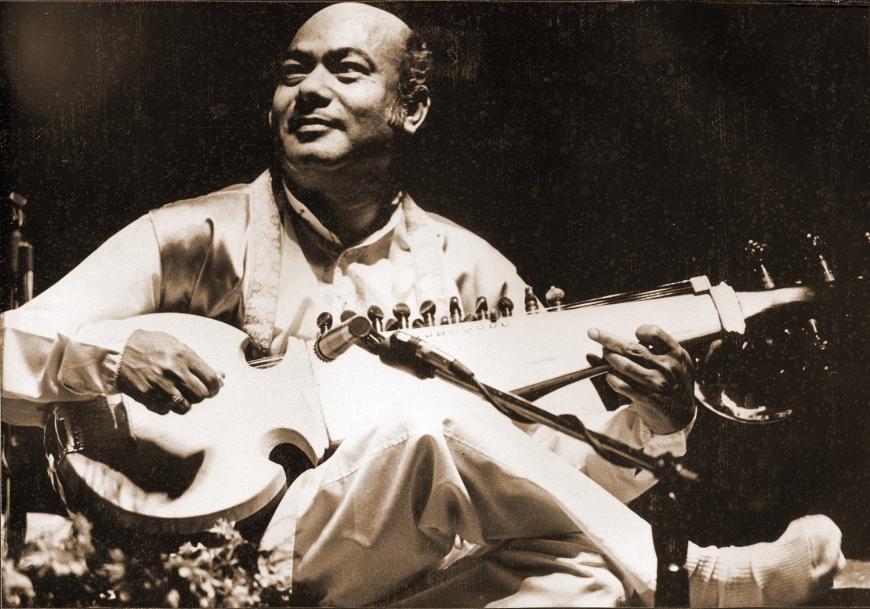
Guitarist Carlos Santana:
“All people have to deal with the same two things — love and fear. That’s all there is. And [Ali Akbar Khan] goes straight to the love. He’s the sound of compassion. I have no problem equating videos of Desmond Tutu, Mandela, Mother Teresa, the Dalai Lama, and I would put Ali Akbar Khan’s music, because it’s the same tone. There are people who came to this planet only to heal and to enlighten. If you go to the desert, you’re going to need water. You can have champagne and wine and beer, tequila, but you’re going to need water. That’s what his sound is like — the sound of singing water.”


